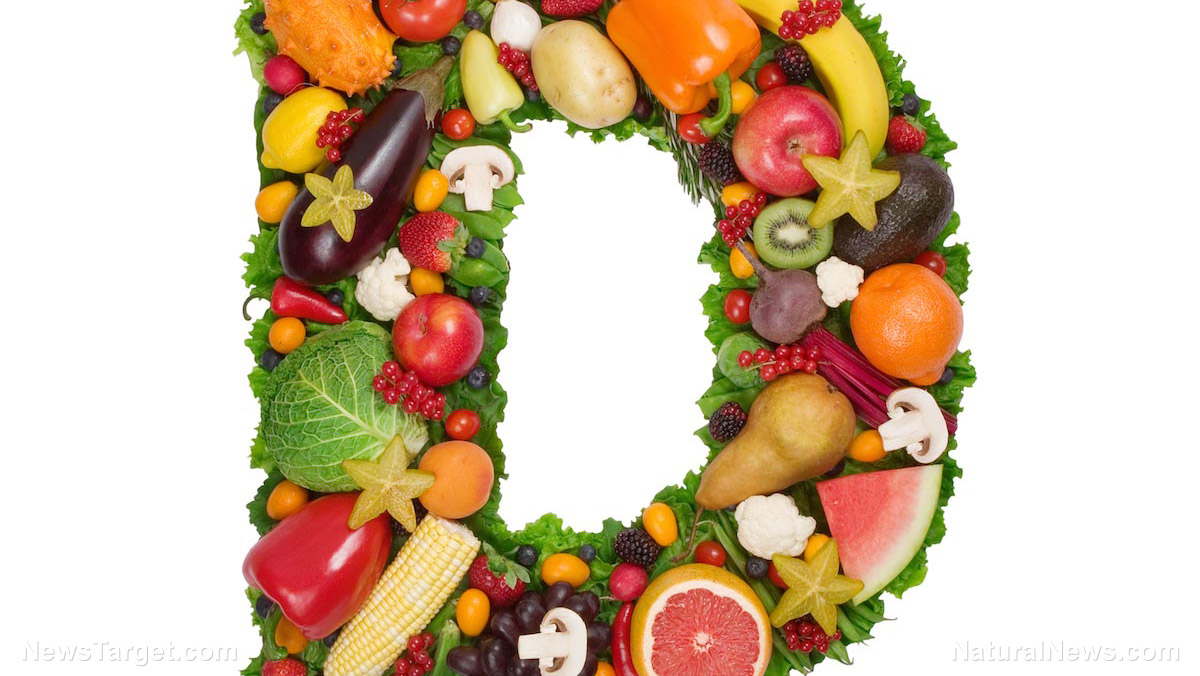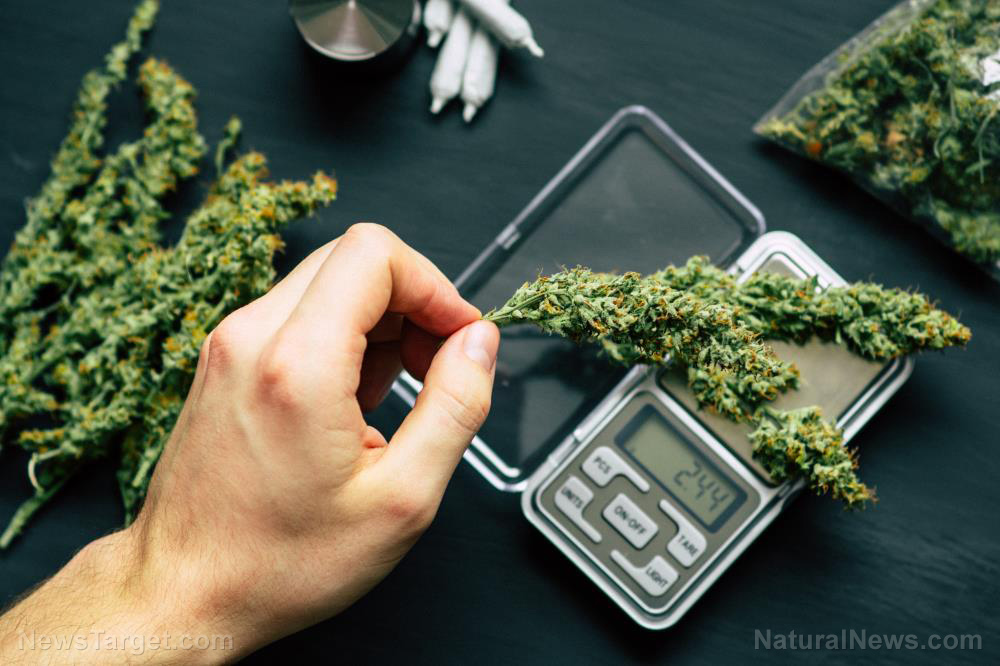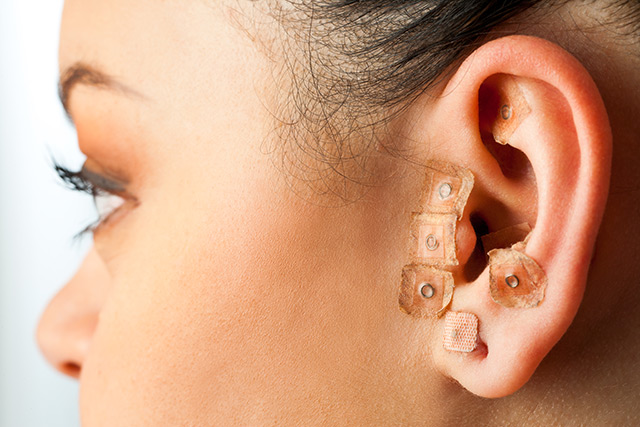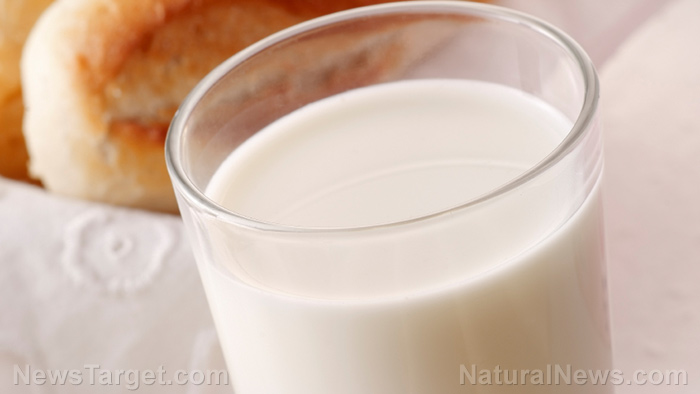Maintaining adequate levels of vitamin D can be a challenge; research suggests eating fortified foods
01/21/2018 / By Earl Garcia

Combining vitamin D-fortified foods with supplements may help ensure safe and adequate levels of the essential vitamin, a study published in the European Journal of Nutrition revealed. A team of scientists at the Technical University of Denmark pooled data from the Danish National Survey of Dietary Habits and Physical Activity (DANSDA) to carry out the study.
The research team examined the individual habitual dietary vitamin D intake of up to 855 women. The experts also conducted graded intake modelling to predict how habitual diet including fish, fortified foods — such as plain yogurt, cheese, eggs and crispbread — and supplements would help increase vitamin D levels in participants. The fortified foods provided 20 micrograms of vitamin D daily, the researchers said.
The results revealed that eating fortified foods and taking vitamin D supplements that provided up to 40 µg/day would enable the participants to attain at least 60 µg/day, which is still below the Tolerable Upper Intake Level (UL)?of?100 µg/day. However, consuming fish, fortified foods, and a vitamin D supplement of 80 µg/day put the women at risk of exceeding the tolerable intake levels.
“The consumption of vitamin D supplements has proven to be effective in increasing vitamin D status, although this strategy is naturally only effective in those who consume the supplements. Low-dose fortification may be a strategy to increase the intake of those individuals in the lower end of the intake distribution range without increasing the risk of the upper end reaching toxic intake levels,” the researchers said.
100% organic essential oil sets now available for your home and personal care, including Rosemary, Oregano, Eucalyptus, Tea Tree, Clary Sage and more, all 100% organic and laboratory tested for safety. A multitude of uses, from stress reduction to topical first aid. See the complete listing here, and help support this news site.
U.S. sees increase in high-dose vitamin D supplement intake
A study published in the Journal of the American Medical Association (JAMA) revealed that the number of American adults taking vitamin D supplements increased significantly between 1999 and 2014, up to three percent of whom even exceeded the daily upper limit. Researchers pooled data from the National Health and Nutrition Examination Survey (NHANES) with a total cohort population of more than 39,000 participants. (Related: 5 Easy-to-miss signs of vitamin D deficiency: Are YOU getting enough?)
The researchers found that the daily supplemental vitamin D use of 1,000 IU or more grew from 0.3 percent in the 1999-2000 period to 18.2 percent in the 2013- 2014 period. Likewise, the daily supplemental vitamin D use of 4,000 IU or more increased from less than 0.1 percent before the 2005-2006 period to 3.2 percent in the 2013- 2014 period. Women, non-Hispanic whites, and people aged 70 years and older had the highest intake of vitamin D supplements, the experts added.
“Characterizing trends in vitamin D supplementation, particularly at doses above the tolerable upper limit, has important and complex public health and clinical implications,” the experts wrote in a Science Daily article.
Choose your vitamin D well, study suggests
Despite vitamin D’s efficacy in promoting the body’s overall health, British researchers cautioned that not all types of vitamin D may produce equal benefits. The researchers explained that vitamin D was categorized into two types: vitamin D2 and D3. According to the experts, vitamin D2 can be obtained from plant sources such as fungi, while vitamin D3 can be found in animal sources.
The scientists examined their efficacy by measuring the vitamin D levels of 335 South Asian and white European women over the course of two winters. The women were divided into five groups. Two groups received vitamin D2 in the form of either a biscuit or a juice drink, while another two received vitamin D3 in the same forms. One group served as the study’s placebo control.
The research team observed that participants who ate the vitamin D2 biscuit increased their vitamin D levels by only 33 percent, while those who drank the juice attained a 34 percent increase. In contrast, those who ate the vitamin D3 biscuit saw a 74 percent increase, while those who drank the juice had a 75 percent increase. The placebo group saw a 25 percent decline during the study period.
“Those who consume D3 through fish, eggs, or vitamin D3-containing supplements are twice as likely to raise their vitamin D status than when consuming vitamin D2-rich foods, such as mushrooms, vitamin D2-fortified bread, or vitamin D2-containing supplements, helping to improve their long-term health,” lead author Dr. Laura Tripkovic told Medical News Today online.
Follow more news on Vitamin D at VitaminD.news.
Sources include:
Tagged Under: #nutrition, food sources, nutrients, supplements, vitamin D, vitamin D sources, vitamin intake, vitamin supplements, vitamins




















